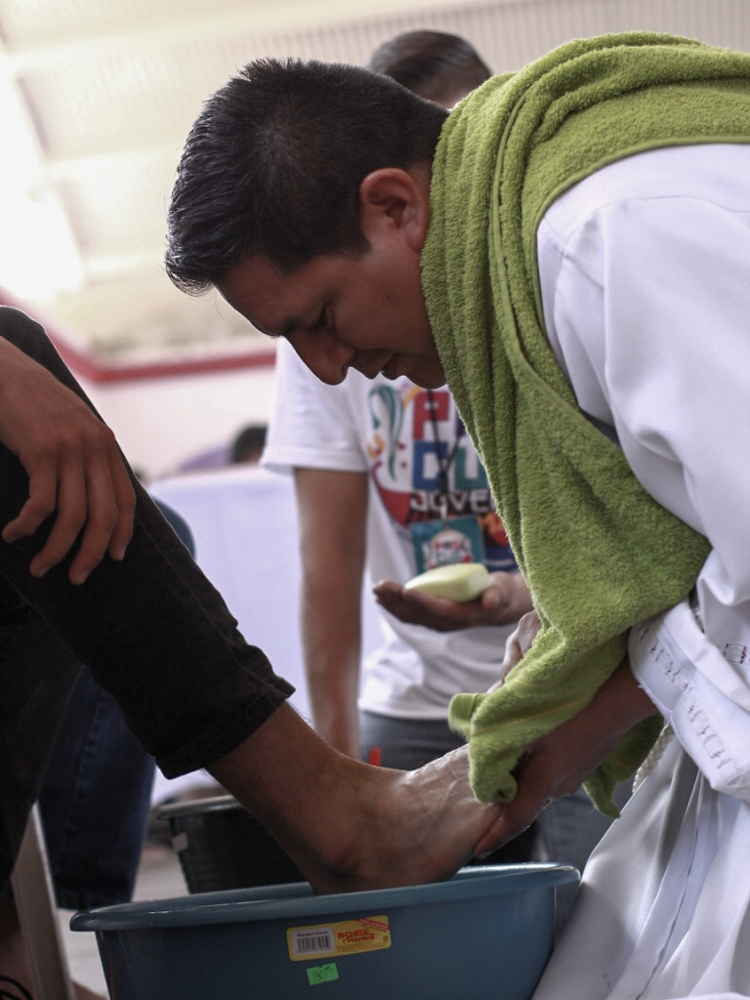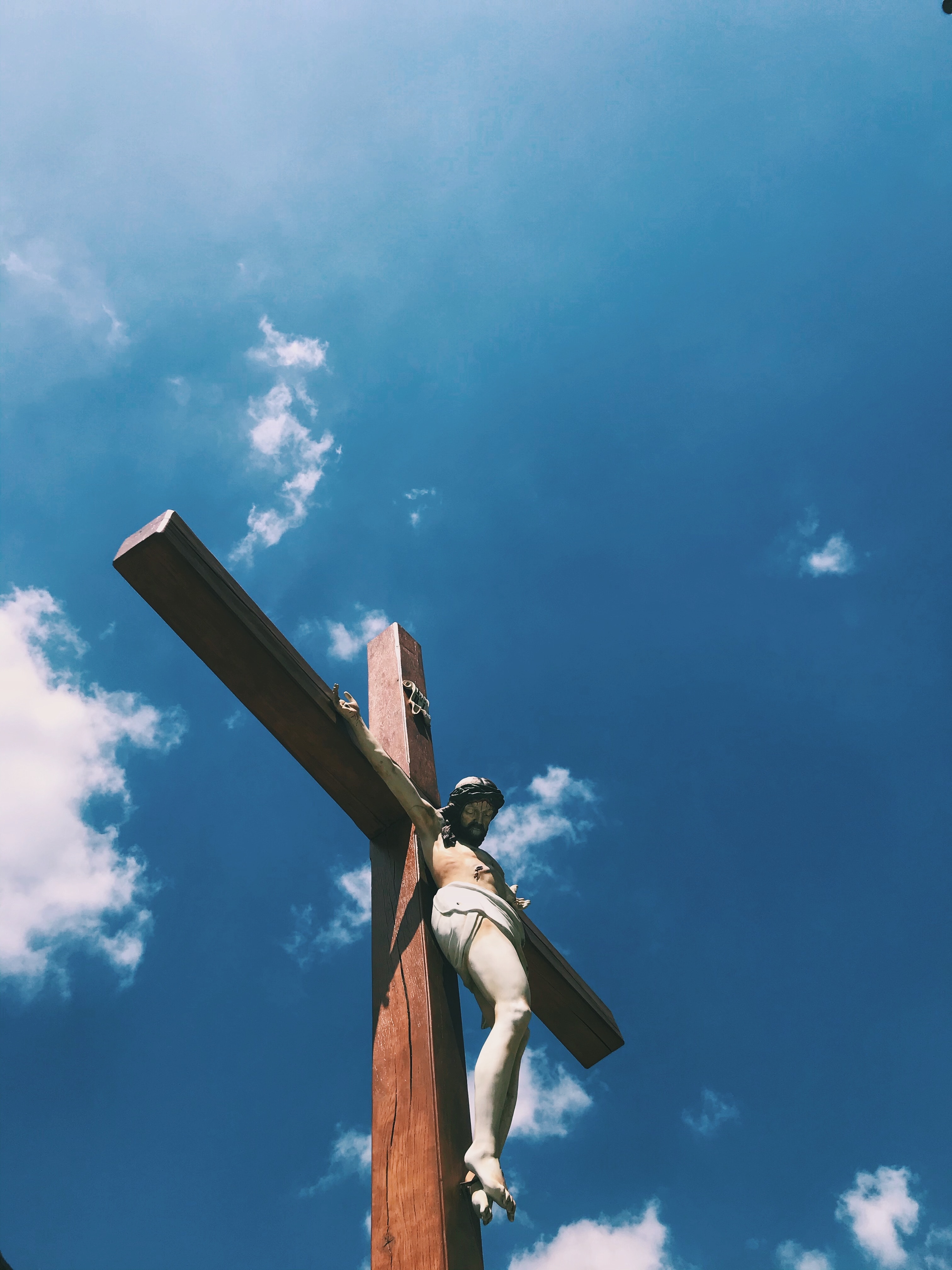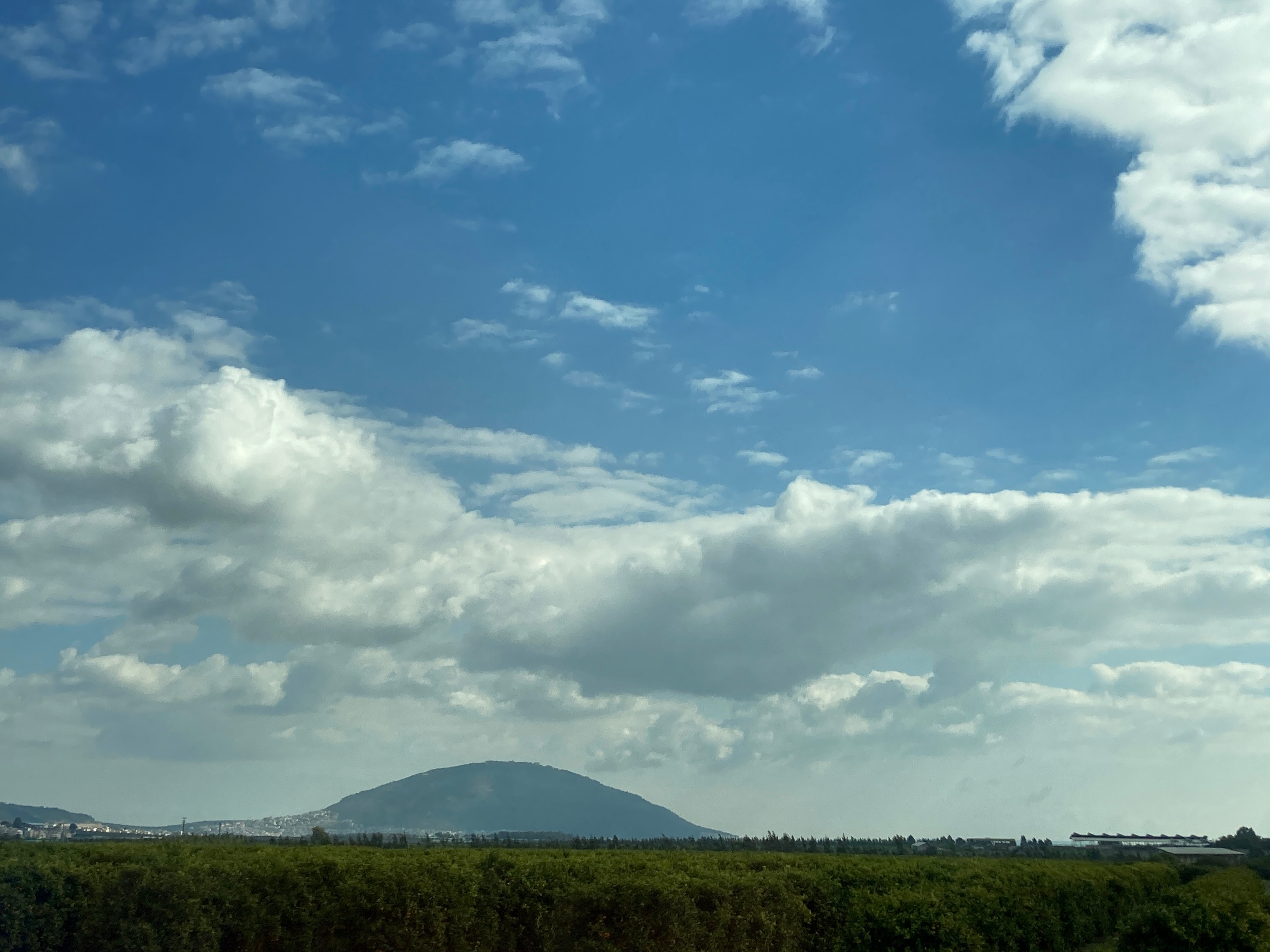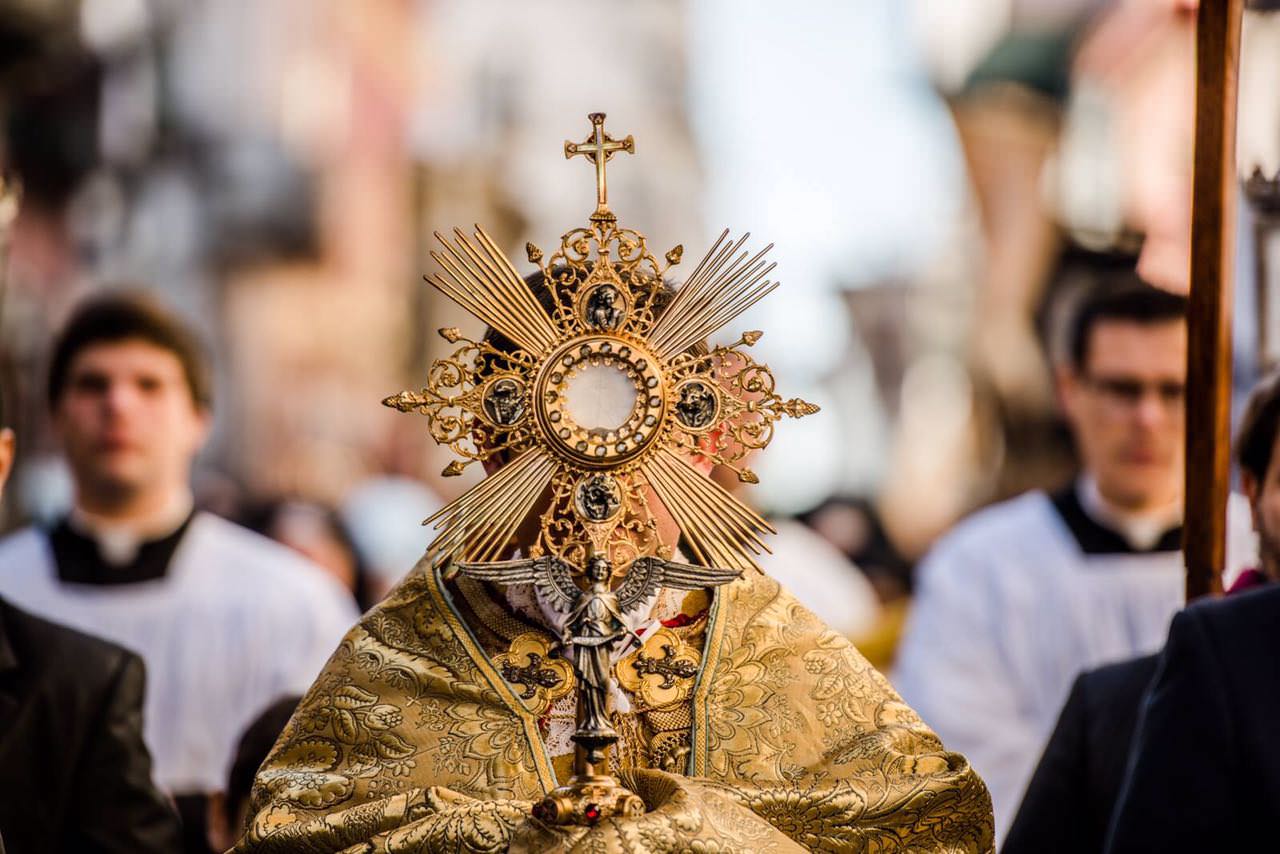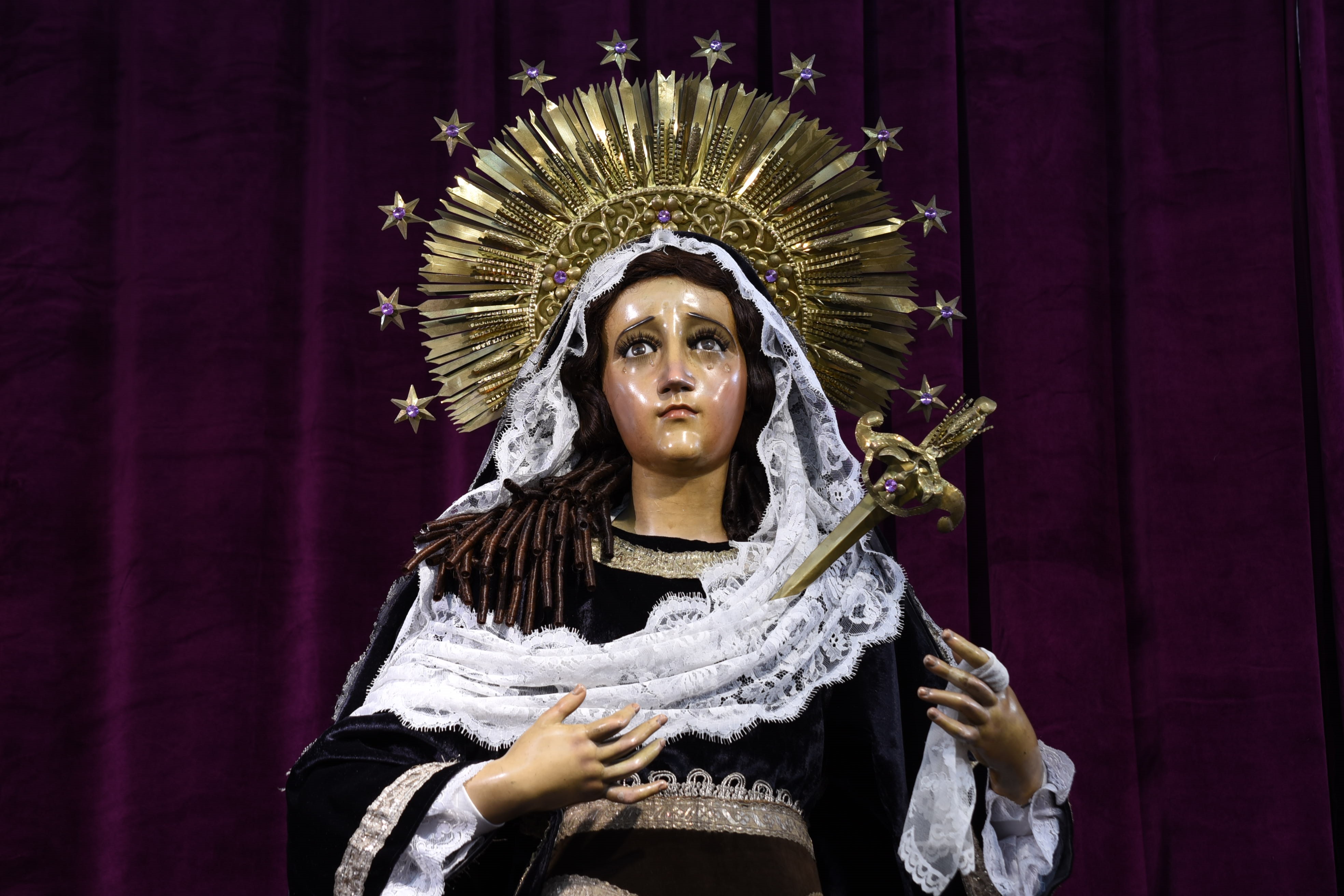Chapter 20 of the Gospel of John emphasizes Peace and the Holy Spirit abiding within us. Christ’s first word following His death is “Peace”. I do not find that I am naturally a peaceful person. I tend to get easily distracted and upset by life not being “fair”, or agitated when things do not go exactly as I had planned. I am flawed. Yet so much greater than this is that I am also loved. Above all else, Christ has laid down his life for me. I owe it to Him to do my best to try to find an inner peace. It is often a battle. My mind races at night, dwelling on what might go wrong. It is by listening to the word of God that I calmed down and am reminded of who I really am. Through dedicating my time to Him in prayer and good deeds, He will rejuvenate me, like the Living Water He declares to the Samaritan woman.
Again and again we must acknowledge that the Holy Spirit resides in each of us, guiding us, and that in each passing moment we can become more like Christ. Pope Benedict XVI explained, “Every person carries within himself, a project of God, a personal vocation, a personal idea of God, on what he is required to do in history to build His Church, a living temple of His presence.” I have a calling, a reason for why God has created me, I was chosen for this life to share God’s glory with those around me. We may not always know where we belong or how each passing moment might unfold. While I may not be at peace on my own accord, with God’s grace, He will remain in me as a source of peace through the Holy Spirit. He will help me find the way.
“Loving God, please grant me peace of mind and calm my troubled heart. My soul is like a turbulent sea. I can’t seem to find my balance so I stumble and worry constantly. Give me the strength and clarity of mind to find my purpose and walk the path you’ve laid out for me”. – Author Unknown
El capítulo 20 del Evangelio de Juan enfatiza la paz y el Espíritu Santo habitando dentro de nosotros. La primera palabra de Cristo después de su muerte es “Paz”. No soy una persona pacífica por naturaleza. Tiendo a distraerme y enojarme fácilmente porque la vida no es “justa”, o a agitarme cuando las cosas no salen exactamente como las había planeado. Tengo defectos. Sin embargo, mucho más grande que esto es que también soy amada. Por encima de todo, Cristo ha dado su vida por mí. Le debo a Él hacer lo mejor que pueda para tratar de encontrar la paz interior pero a menudo es una batalla. Mi mente se acelera por la noche, pensando en lo que podría salir mal. Al escuchar la palabra de Dios me calmo y recuerdo quién soy realmente. Al dedicarle mi tiempo en oración y buenas obras, Él me rejuvenece, como el Agua Viva que le declara a la mujer samaritana.
Una y otra vez debemos reconocer que el Espíritu Santo reside en cada uno de nosotros, guiándonos, y que en cada momento que pasa podemos llegar a ser más como Cristo. El Papa Benedicto XVI explicó: “Cada persona lleva dentro de sí un proyecto de Dios, una vocación personal, una idea personal de Dios, sobre lo que debe hacer en la historia para construir su Iglesia, templo vivo de su presencia”. Tengo un llamado, una razón por la cual Dios me ha creado, fui elegida para esta vida para compartir la gloria de Dios con quienes me rodean. Puede que no siempre sepamos a dónde pertenecemos o cómo se desarrollará cada momento que pasa. Aunque no tenga paz por mi propia cuenta, con la gracia de Dios, Él permanecerá en mí como fuente de paz por medio del Espíritu Santo y me ayudará a encontrar el camino.
“Amado Dios, por favor concédeme paz mental y calma mi corazón atribulado. Mi alma es como un mar turbulento. Parece que no puedo encontrar el equilibrio, así que tropiezo y me preocupo constantemente. Dame la fuerza y la claridad mental para encontrar mi propósito y recorrer el camino que me has trazado”. – Autor desconocido
 Dr. Alexis Dallara-Marsh is a board-certified neurologist who practices in Bergen County, NJ. She is a wife to her best friend, Akeem, and a mother of two little ones on Earth and two others in heaven above.
Dr. Alexis Dallara-Marsh is a board-certified neurologist who practices in Bergen County, NJ. She is a wife to her best friend, Akeem, and a mother of two little ones on Earth and two others in heaven above.
Feature Image Credit: Valentina Alvarez de Gonzalez, cathopic.com/photo/11303-holy-spirit-come

